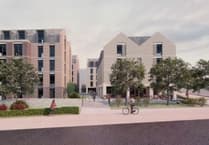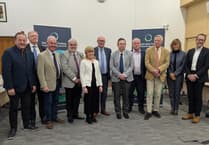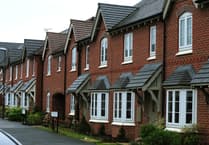NEALY five people in housing need are bidding for each available social-rented property in Mid Devon, Mid Devon District Council has heard.
A total of 933 applicants – which could be individuals or families – have been trying to secure social housing this financial year, but only 205 lets have been made.
This means that for every available property, an average of 4.6 people apply, according to data presented to Mid Devon District Council’s scrutiny committee.
That figure puts it roughly mid-table in terms of Devon’s other districts, with South Hams topping the leaderboard at 3.3 applicants per property and Torridge at the bottom at 7.6.
Simon Newcombe, the council’s corporate manager for public health, regulation and housing, said there is “not enough supply” of new social-rented housing.
“I fully understand the local frustrations on public housing, but the fundamental problem is that there isn’t enough to go around,” he said.
“Why there isn’t is complex, and there are lots of drivers as to why we don’t have enough social housing.”
Mr Newcombe cited fewer private rented properties, loss of permanent homes to other uses, refugee and humanitarian scheme pressures, increasing market rents, high mortgage costs and a cost-of-living crisis as contributing to problems.
The committee was assessing Devon Home Choice (DHC) the countywide system that enables social-rented tenants to bid on properties.
Devon has roughly 60,000 social housing properties, of which about 3,000 are in Mid Devon.
Mr Newcombe said DHC doesn’t build properties, but is the system that tries to fairly allocate available housing to people most in need.
Applicants are put into bands from A to D, based on their circumstances, with A being most in need and D being where the housing situation may be impacting the applicant but is not causing significant deterioration to health or ability to live independently.
Mid Devon also recognises Band E applicants, who may have a health and well-being issue which is not affected by their current accommodation.
The district’s 933 applicants are in Bands A-D, a number which rises to 1,700 when Band E is included.
Councillor Rhys Roberts (Conservative, Cadbury) asked how many Mid Devon applicants are in temporary accommodation while they wait for housing.
Council officer Sarah Thomas said 59 households are in temporary accommodation, including hotels or B and Bs.
Furthermore, 25 families with children under 18 are being put up in short-term options in the council’s own housing stock.
While those families are only in those properties until more suitable accommodation becomes available, Ms Thomas said that at least this meant no families with young children are in hotels.
Council leader Councillor Luke Taylor (Liberal Democrat, Bradninch) raised the issue of families whose accommodation is acceptable when their children are young, but not when they are teenagers.
“I’m sure many members will have dealt with similar examples as one I have in my own ward, where a family of four now includes a 15-year-old brother and 13-year-old sister who have to share a bedroom,” he said.
“This was acceptable when the children were toddlers and the family could only bid on a two-bed property, but now it is an issue as their children have grown older, meaning the property is essentially overcrowded now as the children require separate bedrooms.”
Mr Newcombe acknowledged this was an issue, but added that every such issue that emerges “is just another way of showing that there is a lack of supply”.
“Until more properties become available, we’ll always have the challenge that accommodation is perfectly acceptable when it is allocated to them, but then their children grow up and it no longer is,” he said.
“There is a shortage of properties across the county and nationally, and such people as those with children who have grown older are bidding for properties with other people in the same or worse level of need, so the only way to change things is to make more properties available.”
Mid Devon Housing, the authority’s housing department, is focused on building more properties in the district, Mr Newcombe said, taking into account different property types required in urban and rural locations.
Bradley Gerrard
LDRS





Comments
This article has no comments yet. Be the first to leave a comment.